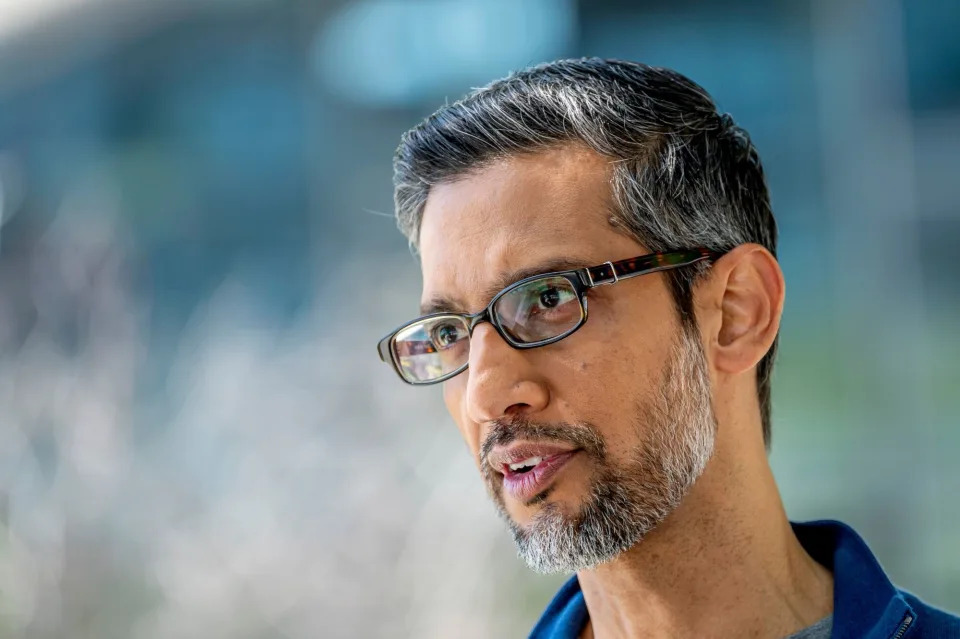Why Elon Musk and Jeff Bezos Want Women to Stay Barefoot and Pregnant
Thom Hartmann
Thu, June 13, 2024
Elon Musk, the father of 11 children, thinks that declining population is a crisis and the world needs more babies—particularly those with his DNA—or there will be a catastrophe. For example, he recently proclaimed: “Population collapse due to low birth rates is a much bigger risk to civilization than global warming.”
Billionaire Jeff Bezos echoed the idea, promoting the fallacy that more people means “more Einsteins.” He said: “I would love to see, you know, a trillion humans living in the solar system. If we had a trillion humans, we would have at any given time a thousand Mozarts and a thousand Einsteins.… Our solar system would be full of life and intelligence and energy.”
The fact is, though, that countries with huge populations generally are more likely to have more slum dwellers than scientists or musicians. It’s only when people have widespread prosperity, so there’s time for a creative middle class to form, that such extraordinary people have the time to develop their talents.
This literally cancerous idea—that continual population growth is a good thing—has been with us for about 2,000 years, and, while it has arguably accounted for some of the positive aspects of modern civilization, it has also left our world in a shambles.
Nonetheless, it’s official doctrine within the Catholic Church, a tiny slice of orthodox Jews and Hindus, and major parts of Islam. Because Christianity and Islam are evangelical, they are constantly trying to spread their influence, the primary means by which they grow their political and economic power.
Close behind evangelism to accomplish that “larger army” is the doctrine that it’s the duty of families to be as large as possible, relegating “conservative ideal women” to broodmare status. Barefoot and pregnant. Kitchen and bedroom only.
The origin of this ideology dates back to the earliest times of warfare, when families, tribes, local baronies, or nation-states went to war. The biggest factor that determined who won a battle was which side had the larger army. And aggressively working against birth control and advocating fecundity is a great way to increase the pool of entrants to your army.
So, really, Musk and Bezos are just echoing a thought virus that has infected much of humanity since the early days of evangelical religion and warfare.
But that time of continuous human population growth is nearly over, and, billionaire eccentrics aside, populations are now declining in many parts of the world. We’d be seeing population decline here in the United States too, if it weren’t for immigration, both legal and otherwise.
It’s become a conservative tenet of faith—drawing from Catholicism, Islam, evangelical Christianity, and crackpot economics—that this decline in population is a bad thing. The biggest army and all that.
It also seems to have captured the mainstream media as if it were conventional wisdom. It’s very rare that you see reporting about population declines that doesn’t position them—often with headlines announcing a “population crisis”—as failures or disasters.
But there are significant advantages to population declines when they’re done thoughtfully and are not the result of disaster. These include economic, environmental, and social benefits that are substantial.
The first is that wages generally rise as populations decline because there is more competition among employers than among employees. Conservatives and, weirdly, the mainstream press present this as a bad thing, although they rarely talk about insurance, banking, or private equity executives walking off with over a billion dollars as something we should know or care about.
We saw this play out in a huge way at a particularly unique moment of history: the Black Plague. When it decimated fourteenth-century Europe, killing a third to half of all the people in just a few short years, the labor force of survivors became so small that—even though kings and usually their barons had literally the power of life or death—workers could negotiate with their employers and demand good pay, fewer working hours, and meaningful benefits.
The result was a flowering of civilization, arts, music, and literature; suddenly, working-class people were paid well enough that they could be creative in their spare time. We called that era the Renaissance, and it was an example of the first truly “middle” class in the history of the post–agricultural revolution world.
The main gift of the Renaissance to future generations was that it birthed the first guilds, the prototype for today’s modern unions.
As working-age population declines, unions will get stronger, which has always, historically, had a positive effect on society.
It’s also better for business: Studies show that unionization reduces worker turnover, which is both expensive and dangerous in many industries. When companies treat workers fairly, workers treat their employers back fairly.
We saw this in the era from 1945 until 1980, when unions were so powerful that CEOs rarely took more than 30 times what the top worker made, while working-class wages were rising faster than any time in American history.
This was, of course, the time before the Reagan Revolution, when an average worker with a single income could buy a home, raise a family, put their kids through college, buy a new car every two years, and take a vacation every summer. Ask any Boomer.
Strong unions reduce economic inequality primarily by lifting up out of poverty an entire middle class. That’s what happened in this country during that roughly 40-year period, until Reagan and the billionaires who own the GOP took a meat ax to it all.
A smaller number of people in the workplace also makes it much harder for businesses to maintain historic and rigid racial and gender hierarchies and pay scales. The workplace becomes more diverse, more interesting, and more innovative. Reducing population is thus also the ultimate women’s equality move.
There’s also less need for extensive infrastructure, like building new office buildings, housing, and shopping centers. This allows the resources of a society to be redirected toward making sure everybody has full access to quality health care and education, and to rebuild the physical, economic, and social infrastructure of the nation.
These don’t just benefit everybody, they also generate overall, nationwide economic prosperity.
As technology continues to advance and replace humans, everything from computers to supermarket checkouts to artificial intelligence is reducing the need for human laborers. A smaller population balances for this, so the impact of automation is also diminished while its benefits are enhanced.
There are also substantial environmental benefits to declining populations. There’s less of a strain on natural resources, less deforestation, and lower greenhouse gas emissions.
Smaller human populations produce smaller populations of our food animals, which represent about 60 percent of all mammalian flesh on earth. The world’s biodiversity can then be enhanced, wildlife and wild spaces protected, ecosystems repaired, and ecological balance restored.
Catholic and evangelical ideologues continue portraying population decline as a bad thing. But they’re fighting an uphill battle; women all over the world are choosing fewer babies (where they can), sperm counts are collapsing, and infertility is rampant (both, apparently, because we’ve poisoned our environment and food supply trying to meet the needs of eight billion people).
That won’t stop Republicans on the Supreme Court and in Congress, however, from pandering to those groups with their anti-abortion and anti–birth control legislative and judicial attacks on women’s rights.
But, as Dwight Eisenhower once wrote about a couple of oil baron brothers and their followers, “Their number is negligible and they are stupid.”









